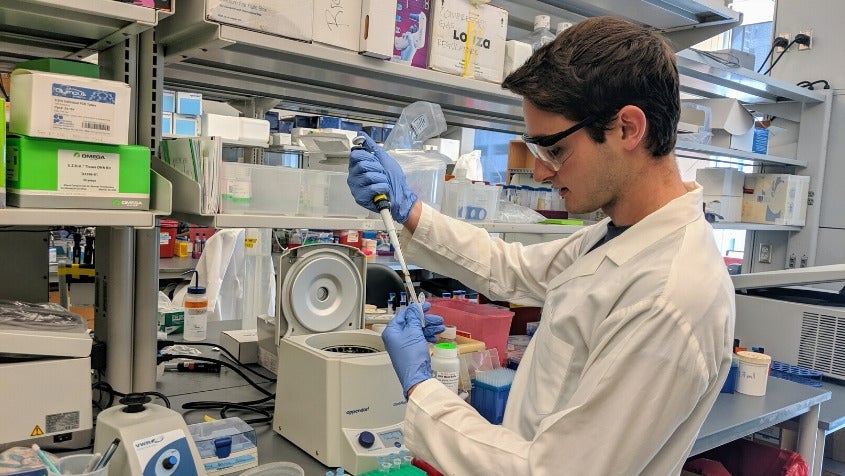Completing three laboratory rotations is a program requirement for bioengineering Ph.D. students at Rice University, but it’s more like a rite of passage.
First-year doctoral candidates contact faculty members whose research aligns with their interests to coordinate rotations in their labs. As long as the faculty member has space, students complete short projects that acquaint them with the labs. Meanwhile, students get a chance to show off their skills.
Presented as an opportunity for incoming students to get a sneak peek at labs they may wish to join, the rotation process is by nature introspective. It encourages students to reflect on their goals for graduate school and learn to build relationships with faculty mentors who can help them reach those goals.
Rotations are three weeks long – just enough time to get acquainted with a lab. Many students find that the rotation period serves as a quick litmus test to confirm their initial preferences. Others discover unexpected interests.

“I entered grad school thinking I knew exactly what I wanted to do,” said Brett Pogostin, a first-year bioengineering Ph.D. student. “But my first rotation totally opened my mind to possibilities I hadn’t thought of, like doing research with newly hired faculty in bioengineering.”
The sentiment was echoed by other students who have found resources at Rice to explore both new research directions and potential career paths in industry and academia, as well as alternative fields like science communication. These resources include the Center for Teaching Excellence, the Doerr Institute for New Leaders and the Liu Idea Lab for Innovation and Entrepreneurship.
Rotations are also an excellent way to get to know first-year students in other programs. For example, the biochemistry and cell biology Ph.D. program involves three seven-week rotations, offering similar opportunities and challenges to those in the bioengineering program. In an interdisciplinary research community, shared experiences empower research.
It’s not easy, though. Concerns about making a good impression and managing the expectations of multiple potential mentors can be a source of anxiety. Together with the complicated process of moving to a new city and entering graduate school, these challenges can be intimidating.
The rotation process prepares first-year students for the obstacles ahead. Rotations have become a tradition, serving as a common ground for students new and old. The process forges bonds between first-year graduate students through shared struggles and successes.
Kevin Lorch is a first-year student in the Department of Bioengineering doctoral program, with a B.S. in Biomedical Engineering from Boston University.

